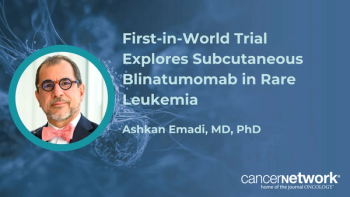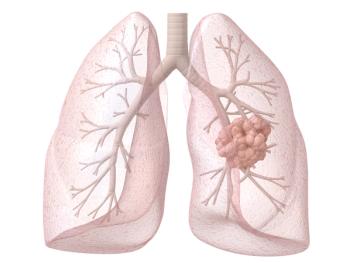
Zev A. Wainberg, MD, on Findings From the Updated KEYNOTE-062 Trial With Pembrolizumab/Chemo for Advanced Gastric/GEJ Adenocarcinoma
In an interview with CancerNetwork® during the 2022 Gastrointestinal Cancer Symposium, Zev A. Wainberg, MD, discussed key updates from the phase 3 KEYNOTE-062 trial, examining pembrolizumab plus or minus chemotherapy for patients with advanced gastric and gastroesophageal junction adenocarcinoma.
In an interview with CancerNetwork® during the
Transcript:
The study has really held up over time. Unfortunately, there was still no role for the addition of pembrolizumab to chemotherapy over chemotherapy alone, which is of course, a distinction from the CheckMate-649 data, which did show a role for nivolumab in CPS greater than 5 patients over chemotherapy alone. [It's] a little bit of a contradiction, obviously, in the sense that there were 2 different drugs, both of which have activity in this disease, but one met its endpoint in this regard and one did not. Long-term follow up studies did show that, as a single agent, pembrolizumab noninferiority continued to reach its end point, if you regard that as an important endpoint.
What's interesting is that 2 years later, some of the efficacy or non-inferiority [findings] have held up with respect to pembrolizumab vs chemotherapy as a single agent, particularly in the patients with a CPS greater than 10, where the 2-year survival rate was nearly 40% with pembrolizumab vs 21% with chemotherapy alone. In the CPS greater than 10 patients, there is more bang for your buck with this agent without question. The hazard ratios and the medians slightly improved over the last few years, based on long-term follow up results. Of course, the field has changed so dramatically since then, [therefore] the relevance of it is questionable.
Reference
Wainberg ZA, Shitara K, Van Cutsem E, et al. Pembrolizumab with or without chemotherapy versus chemotherapy alone for patients with PD-L1–positive advanced gastric or gastroesophageal junction adenocarcinoma: Update from the phase 3 KEYNOTE-062 trial. Presented at 2022 American Society of Clinical Oncology Gastrointestinal Cancers Symposium. January 20-22, 2022. Abstract 243.
Newsletter
Stay up to date on recent advances in the multidisciplinary approach to cancer.










































